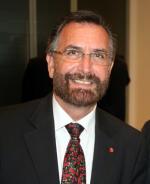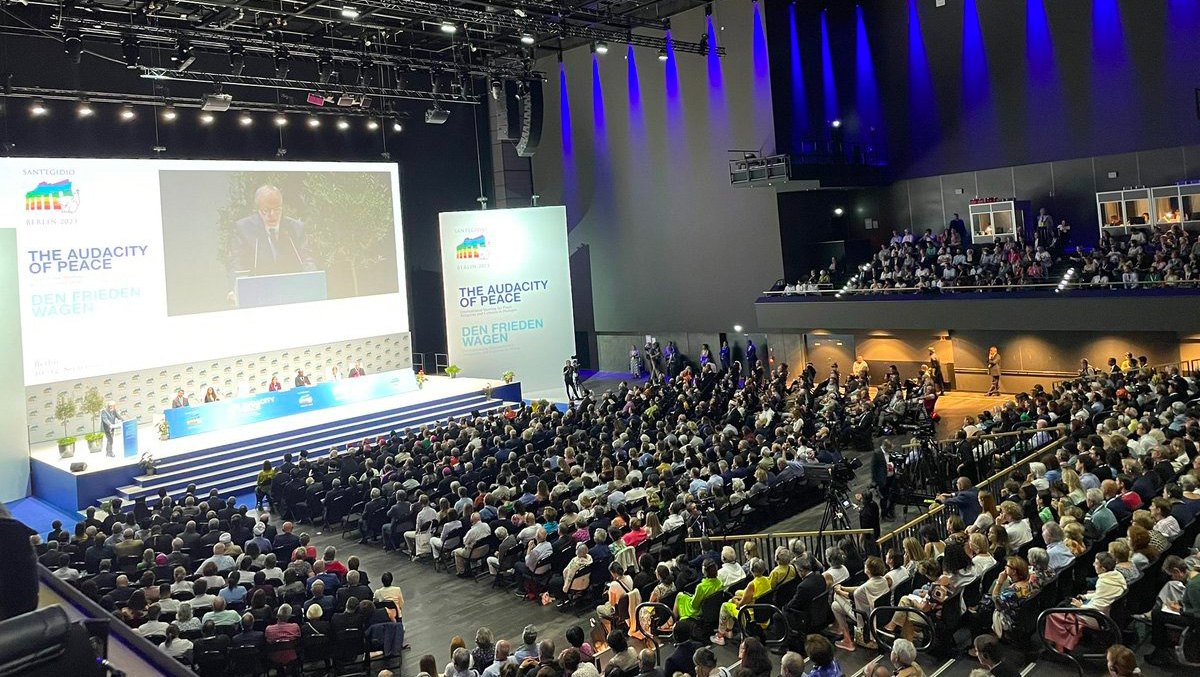
David Rosen
Rabbi, Special Advisor to the Abrahamic Family House (AFH) in Abu Dhabi, Israelbiography
I believe it is most appropriate that I have been given the honour of participating in this panel just before the commencement of the Jewish New Year, Rosh HaShanah. In fact, the whole month that precedes it, is one of preparation for the High Holydays of the Hebrew calendar, and the central theme of this season is conveyed in the Hebrew word, “teshuvah”.
It is commonly translated as “repentance”, but actually comes from the Hebrew root “shuv” meaning “return”.
The title of this panel in which I am honoured to participate is naturally articulated by the organizers from a Christian perspective, in which humanity is inherently in need of being “saved”. I believe that most Christians would understand this to mean that human beings do not have the capabilities to do this by ourselves. But in this regard, Judaism does not have the same approach. It affirms that, as all human beings are created in “Divine Image”, all people are created naturally good. At the same time, we have been created with the capacity for discernment and choice. Choice inevitably means that we sometimes make mistakes, mostly unintentional, but sometimes intentional. Mostly they are of a small nature, but sometimes they are big; some make these mistakes often, others very occasionally. These mistakes are what we call “sin”, and they distance us both from God and form our own godliness and goodness. Various factors may lead us to sin, but mostly it is a result of weakness (being easily corrupted and led astray), and laziness.
However, Judaism teaches that just as we are created with an in-born capacity for choice; we are created with an in-born capacity to overcome sin, to repair ourselves, and to return to God and own godliness and goodness.
The liturgy during this month, and especially during the High Holydays covering the Ten Days of Penitence between Rosh haShanah and Yom Kippur , the Day of Atonement, is focused on this concept; on reflecting on the past year, our failures of commission and omission; our sincere contrition for these sins; and our resolve to behave better and be deserving of another year of life.
The wages of sin are death, but sincere “teshuvah” together with prayer and charity, we declare in the liturgy of the High Holydays, “avert the evil decree”, i.e. they “save” us and justify the Divine gift of another year of life.
However, this responsibility cannot be only personal. To begin with, our sages teach that while our efforts in this regard can atone for our sins in relation to God , i.e. personal transgressions; we cannot achieve full “teshuvah” until we have sought forgiveness from our fellow human beings for any sins we may have committed against them. Accordingly, without our own social atonement, there cannot be Divine atonement and deliverance, the “saving” of our souls. In addition, our liturgy on these days is formulated in the plural “we have sinned” etc., expressing the idea that we have collective responsibility for one another and for our communities.
As implied, Judaism views Rosh haShanah as an annual Day of Divine Judgement. But it is also identified as the time when the Creation of the World took place, and more precisely the creation of the human being, each of us created in the “Divine Image.”
Accordingly, our liturgy on these days portrays all human beings as being assessed at this time before the Heavenly tribunal to determine the worthiness and future of all.
Thes ideas in themselves affirm our inextricable relation to one another, and our inability to be truly purified and “saved” from the consequences sin, without taking responsibility for one another, and especially the poor, the needy and the vulnerable.
Redemption of course has a particular national aspect to it in Jewish tradition. This is because the Divine Covenant made with the Children of Israel is specifically related to the life of the people as such in the land of the Covenant, the land of Promise, the land of Israel. Thus, exile from the land is portrayed in the Bible, and was seen by the people, as the Divine punishment for our sinfulness. Nevertheless, the books of Leviticus and Deuteronomy make it clear that the Divine Covenant is eternal, and therefore no matter how long the exile might be, God in his unlimited mercy and compassion would always eventually bring us back to the Land to give us another chance.
However here too, our ability to be saved from the consequences of our sinfulness, i.e. exile, depends on our collective behaviour, and especially our concern for the stranger, the widow, the orphan, and the poor. In the words of the prophet Isaiah “ Zion will (only) be redeemed through justice, and those who return to her, through righteousness.”
This is a message for us all. Only our commitment and care to advance justice and righteousness for all, ensuring especially that such is provided for the needy and the stranger, can guarantee the wellbeing and flourishing of our societies as a whole.
